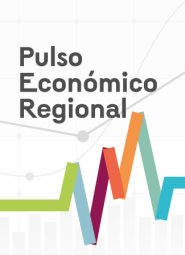The Management of Coffee: Bonanzas and Crisis: Political Economy Issues
The series Working Papers on Economics is published by the Office for Economic Studies at the Banco de la República (Central Bank of Colombia). It contributes to the dissemination and promotion of the work by researchers from the institution. This series is indexed at Research Papers in Economics (RePEc).
On multiple occasions, these works have been the result of collaborative work with individuals from other national or international institutions. The works published are provisional, and their authors are fully responsible for the opinions expressed in them, as well as for possible mistakes. The opinions expressed herein are those of the authors and do not necessarily reflect the views of Banco de la República or its Board of Directors.
The analysis of the impacts of coffee bonanzas and crisis on the Colombian economy, given its importance, has been one of the favorite topics of research both by Colombian and foreing economists, Cárdenas (1991); Carkovic (1992); Cuddington (1986); Ocampo (1994); Posada (1992); Urrutia and Suescún (1994). The political economy aspects behind the policy response by Colombian authorities has not had similar emphasis in the literature. Such is the topic of this paper.
The article starts with a historical overview of the international coffee price with the purpose of identifying the major periods of bonanzas and crisis. In a chronological pattern, the paper discusses the main istitutional and political economy issues that took place then and the extent to which they may explain the macroeconomic response to bonanzas and crisis.
The paper singles out the key role traditionally played by the coffee growers represented through the National Federation of Coffee Growers and poses the question of what should be its future role,in a country where coffee has lost its importance in foreing exchange earning and in GDP, but where the coffee activity continues to be an important source of rural employment and where the coffee producers maintain a political and economic leadership in key regions of the country.































































